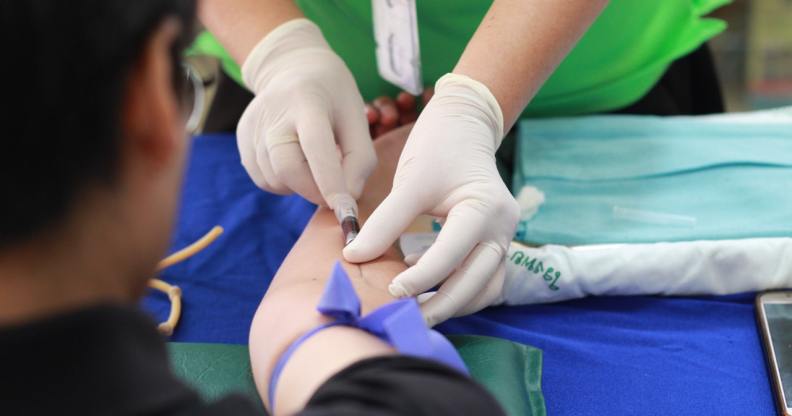New figures reveal how many queer men are still being turned away from blood banks in Ireland because of their sexuality

(Pexels)
Dozens of queer men have been turned away from blood banks in Ireland in the last two years due to archaic rules.
New statistics released under the Freedom of Information Act and reported by the Irish Examiner show that 70 queer men were turned away at blood banks between 2017 and 2019 because of their sexuality.
The report states that 57 men were told they could return to give blood once they had abstained from sex with other men for 12 months. The remaining 13 were told that they were banned from donating for life, for reasons unknown, according to the Examiner.
In Ireland, as is the case in a number of other countries, gay and bisexual men are prohibited from donating blood if they have had sex with another man in the last 12 months.
This rule was introduced in 2017 and has been challenged in the High Court. Before it, queer men in Ireland who had been sexually active with other men were banned from donating blood for life.
Such measures were initially introduced across the world around the time of the AIDS epidemic of the 1980s, however many countries have since relaxed their rules.
Last month, researchers in the United States found that there was no increase in HIV-transmission through blood transfusions after its lifetime ban on gay and bi donors was dropped.
Gay blood ban remains in place despite coronavirus pandemic sparking shortages.
The coronavirus pandemic has meant that it is harder than ever for blood transfusion services across the world to collect blood from donors.
The Irish Blood Transfusion Service (IBTS) is asking that regular donors to make appointments before turning up at their clinics, and has urged people over 70 to stay at home.
Despite these challenges, the 12-month deferral period for gay and bisexual men still stands, meaning an entire cohort of the population is ineligible.
The US recently announced it would allow gay and bisexual men to donate blood after abstaining from sex for three months, a reduction of the previous 12-month ban.
The Food and Drug Administration (FDA) announced its policy change on April 2 in the face of blood shortages due to the ongoing coronavirus pandemic.
In England, Scotland and Wales, the deferral period has stood at three months since November 2017, having previously been one year.
In Northern Ireland, the previous lifetime ban was replaced with a 12-month deferral period in September 2016.

